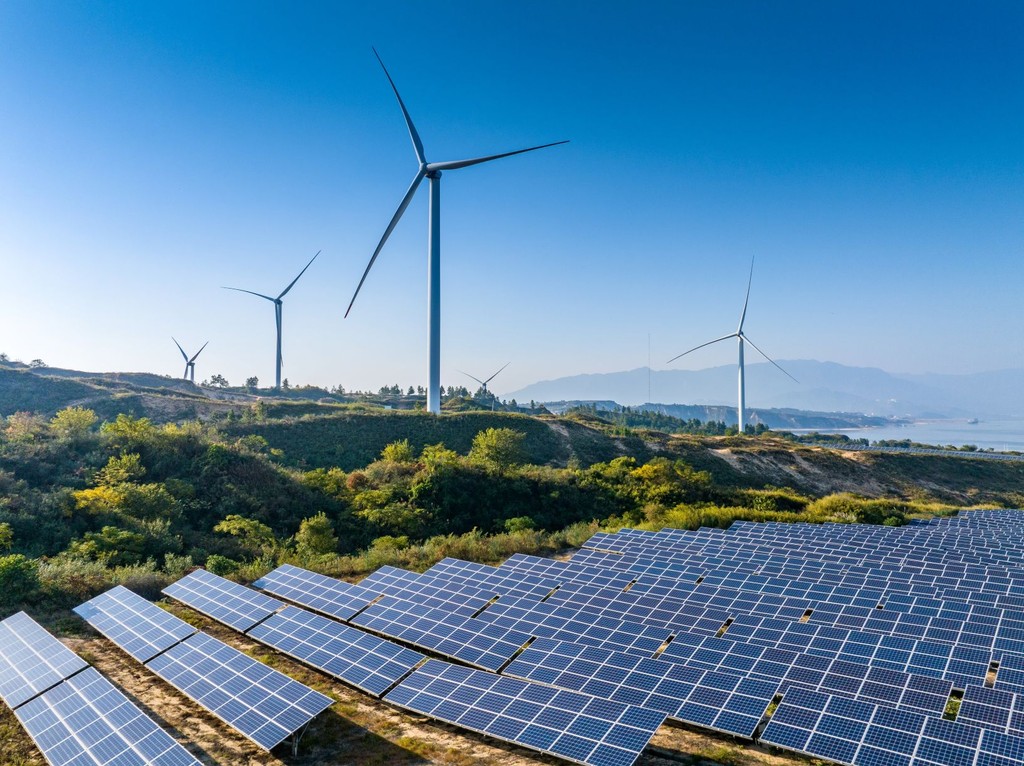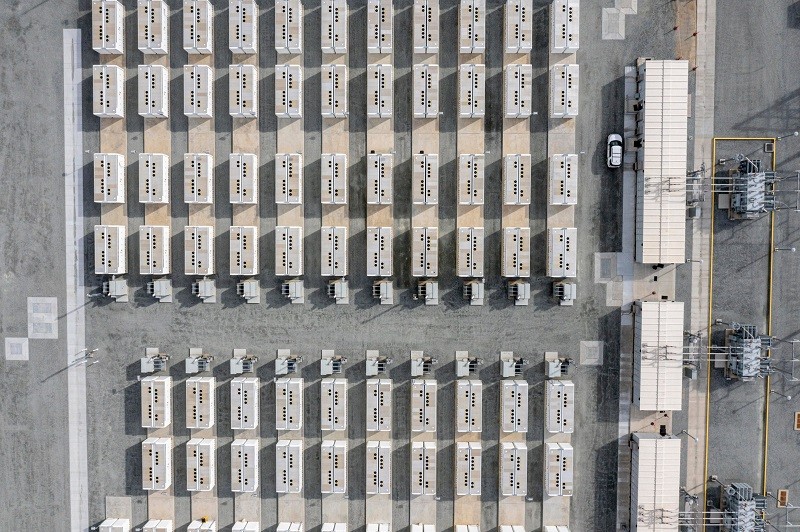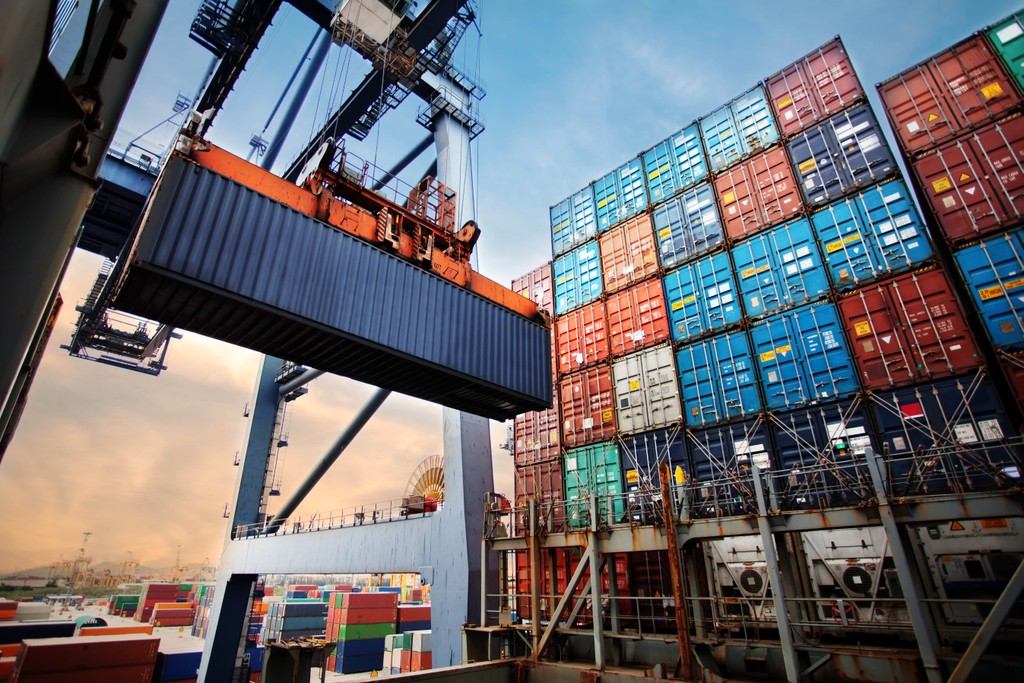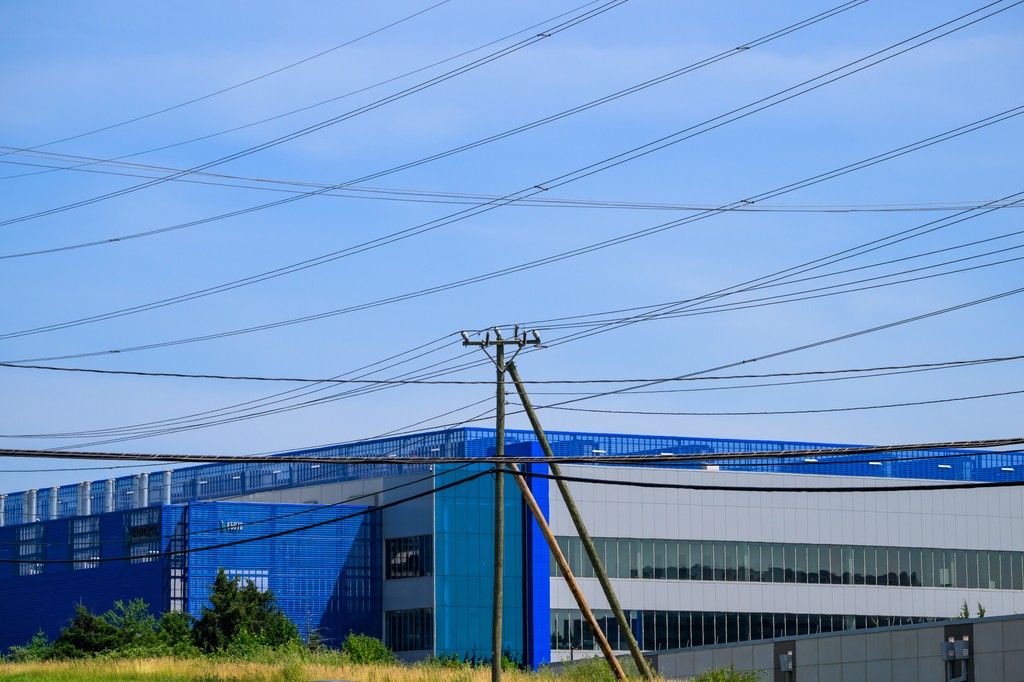By Albert Cheung and Aleksandra O’Donovan
In 2022, BloombergNEF is supporting the work of the Zero Emission Vehicle Transition Council, an international forum that convenes governments representing over half of the world’s car market, to accelerate the pace of the global transition to zero-emission vehicles.
To coincide with today’s ZEV Transition Council Ministerial Meeting in Leipzig, Germany, BNEF is publishing a ‘dashboard’ showing the speed of progress towards ZEVs globally, and in ZEV Transition Council countries.
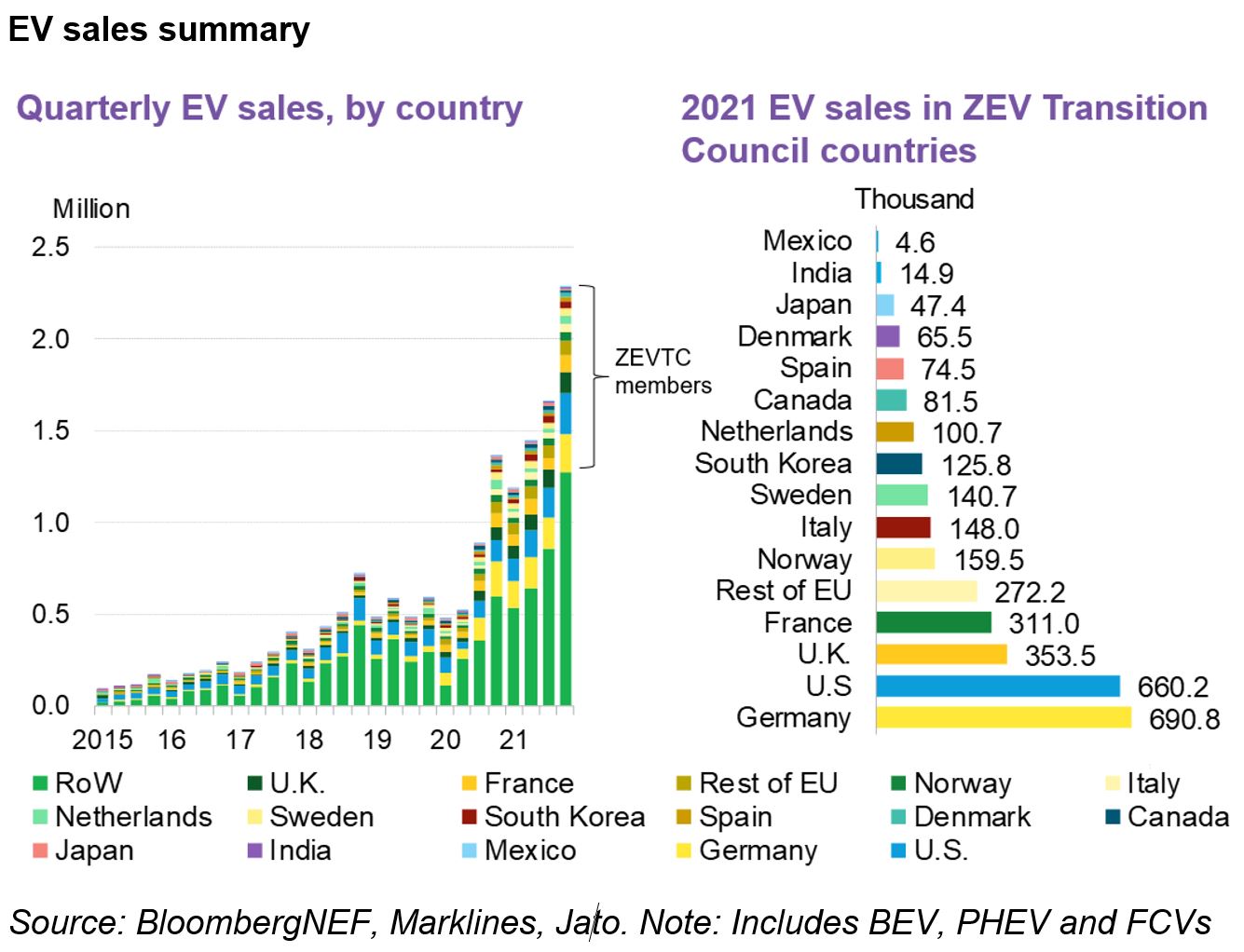
Some key findings from the dashboard include:
- Global passenger electric vehicle (EV) sales grew by 103% in 2021, to nearly 6.6 million units. ZEVTC member countries combined were responsible for 50% of these EV sales. About 70% of global EV sales were pure battery electric vehicles, which are zero-emission at the tailpipe. Around 30% were plug-in hybrids, while fuel cell vehicles were below 1% of the market.
- Globally, EVs accounted for 13% of passenger vehicle sales in 4Q 2021, or 9% when excluding plug-in hybrids. If plug-in hybrids are included, countries such as Norway (97%), Sweden (60%), Netherlands (51%) and Denmark (49%) have reached very high sales penetrations as of 4Q 2021, demonstrating true mass-market demand for cleaner vehicles. Other countries are still getting their markets started.
- The public charging infrastructure base is growing steadily. The typical ZEVTC country added about 20-30% to its installed base of public charging connectors in 2021, while some (notably India and Italy) added connectors at a much higher rate.
- Several automakers with headquarters or major operations in ZEVTC countries have surpassed 10% EVs in their sales mix: BMW, Geely, Mercedes-Benz and VW Group. Tesla has been the leading EV manufacturer since 2018.
- Sales of zero-emission trucks are still very low, putting commercial vehicle decarbonization far behind the progress made in passenger vehicles. However, three major truck manufacturers have recently presented plans for zero emission medium- and heavy-duty trucks. Between 2019-2021, these three manufacturers (Daimler, Volvo and Traton) sold around 450,000 units annually in ZEVTC countries, accounting for about 30% of the market.
- Global oil demand in road transport reached roughly 43.7 million barrels per day in 2021, a slight increase since 2015. The adoption of electric vehicles and fuel cell vehicles avoided almost 1.5 millions of barrels of oil per day in 2021 – about 3.3% of total demand. The displaced demand is roughly equivalent to one-fifth of Russia’s total oil and oil products exports prior to the war, and roughly double Germany’s imports of Russian oil and products at the end of 2021.

